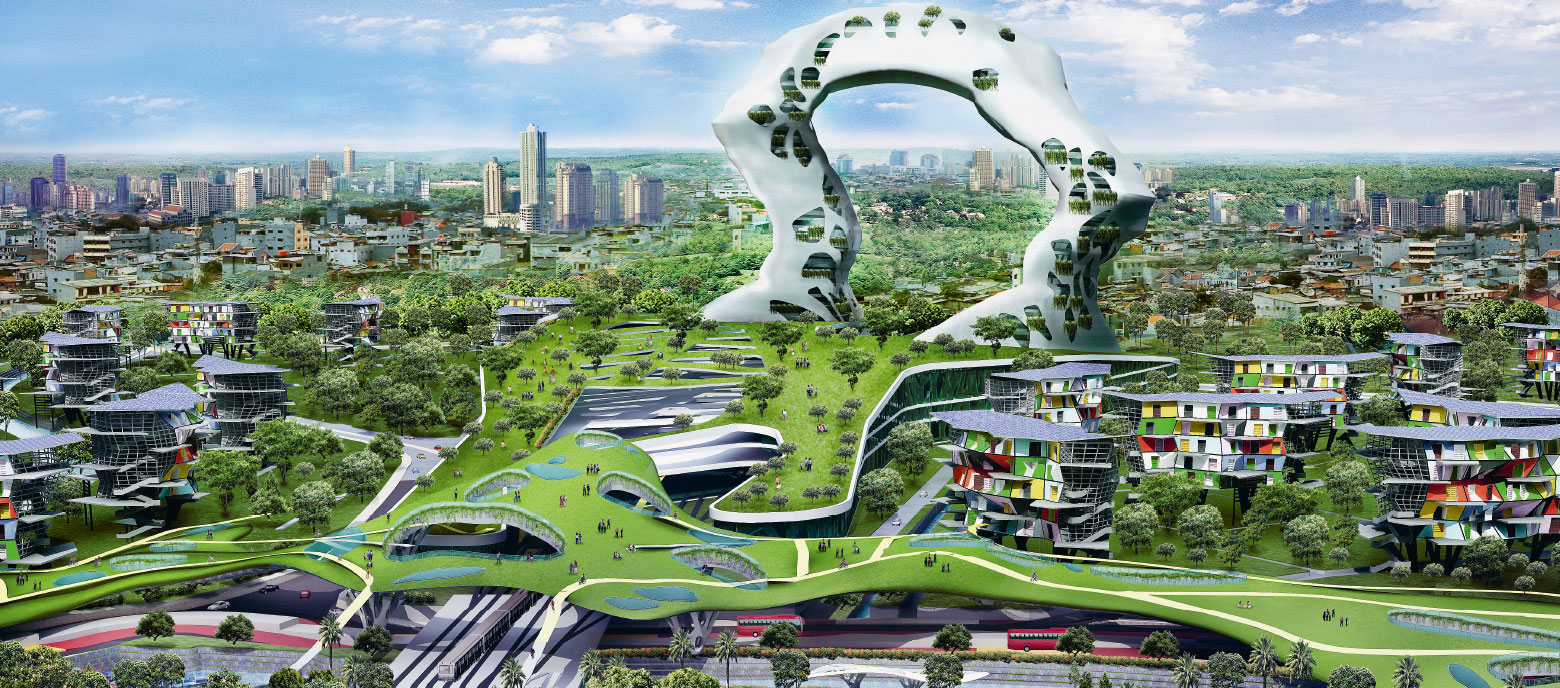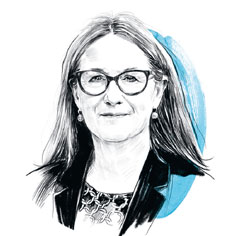Guest column
Greening the economy

The Paris Agreement was adopted by 195 Parties in 2015. Its goal is to limit global warming to well below 2 °C, and preferably to 1.5 °C, compared to pre-industrial levels. Under the agreement, countries communicate commitments and action plans to reduce their greenhouse gas emissions and build resilience to adapt to the impacts of climate change in the Nationally Determined Contributions (NDCs). But even if all unconditional NDCs were implemented, we would still be on course for a temperature rise of well over 3 °C, according to the United Nations. So, it is clear: we need a more ambitious commitment on dealing with climate change. Or at the very least, the commitment to the NDCs must be fulfilled without any delay.
As a vulnerable country, Indonesia has a strong commitment to addressing climate change. Our target is to reduce emissions by 29 per cent against the business-as-usual scenario and by 41 per cent with international support. We aim to achieve this target through five sectors, of which forestry and energy are the two most important ones. We also wish to increase our resilience to climate change through five aspects: life system resilience, special territory resilience, economic resilience, ecosystem resilience and support system resilience.
Ambitious targets require considerable resources
These ambitious targets require considerable resources. The financing needed for this climate mitigation programme amounts to almost USD 250 billion according to Indonesia’s Second Biennial Update Report. The average required per year is USD 19 billion, of which more than 80 per cent is earmarked for energy and transportation, while the rest is needed to fund other sectors.
The pandemic has taught us a valuable lesson, that we should include sustainability aspects in development. The outbreak demonstrated vividly that the environment recovered quickly, as pollution levels hit multi-year lows due to policies that limited activities. The World Meteorological Organization (WMO) found that global CO2 emissions had decreased by 6 per cent during the pandemic. However, this was or is only a short-term phenomenon. As our current economy is still closely tied to emission-producing practices, it can be predicted that emission levels will rebound as soon as economic and social activities recover.

A comprehensive policy package is therefore needed to counter the emission increase during the economic recovery and link this with a green transition. Although government budgets are limited, especially during a pandemic, we cannot afford to stay passive. In fact, state budgets can be used to enhance the transformation towards a green economy. Revenue policies can be directed to stimulate the use of renewable energy as well as environmentally friendly business fields. The tax system supports the development of renewable energy in the form of tax holidays, tax allowances, exemption from import duties, reduction of VAT, government-borne tax and reduction of property tax.
Also, special policies encourage low-carbon and climate-resilient government spending. This is exactly what Indonesia is doing. The Ministry of Finance implemented a Climate Budget Tagging mechanism to determine the contribution of the state budget in tackling climate change. Last but not least, Indonesia is developing innovative financing instruments to finance green projects.
Innovative finance is key
To promote and encourage innovative financing in Indonesia, the Government introduced green sukuk. These are climate bonds that invest in renewable energy and other environmental assets. The Government launched the first green sukuk in 2018, and was able to obtain more than USD 1 billion – and it received thirteen international awards for that, including from IFR Asia, Islamic Finance News, FinanceAsia, Euromoney, and Climate Bonds Initiative. This issuance was followed by three more, the second one at the height of the pandemic in June 2020, which saw the number of green investors increase by more than 33 per cent. The latest was in June 2021, when we introduced a 30-year tenor global green sukuk format for the first time, which was also the first in the world. This issuance proves the dedication and long-term commitment to green and sustainable financing, as well as pioneering financing methods in tackling climate change. There are five areas of funding that have been financed by green sukuk, including sustainable transportation, energy efficiency, renewable energy, resilience to climate change for disaster risk areas, and waste to energy and waste management.
We also provide various funding windows to support climate change mitigation and adaptation actions in Indonesia, such as SDG Indonesia One, the Green Climate Fund and an Indonesian environment fund called Badan Pengelola Dana Lingkungan Hidup (BPDLH). BPDLH is a public service agency that gives out various financial instruments to improve the environment and control climate change. SDG Indonesia One is a blended finance platform providing various project funding facilities which are aimed at achieving SDG targets. Meanwhile, Indonesia has also accessed the Green Climate Fund for several climate projects. Together they are expected to catalyse green investments in Indonesia.
‘Climate change is a challenge for all of humanity and requires strong global political will to take action.’
We believe the transformation into a green economy requires a solid synergy between fiscal, monetary and financial sector authorities. Only then can we direct economic actors to take into account environmental aspects and climate change in their activities. In recent years, the Ministry of Finance has passed several policies, among others the Mitigation Fiscal Framework. It states clearly how public funds are to be spent to help mitigate climate change. And we will continue to formulate policies in that direction. In addition, the Financial Sector Authority (OJK) launched guidelines under the title Sustainable Finance. They require national financial institutions to have a portfolio in green financing. They also contain a roadmap for the years 2021 to 2025 that aims at creating a sustainable financial ecosystem. This will be the basis for the financial sector and a reference for related ministries in developing innovative financing.
The global community needs to do more
So, all in all Indonesia has entered this new path and is well on its way. One issue that worries me, however, is the global political will when it comes to financing. Bluntly put, it is still lacking. The developed countries’ obligation to mobilise financial support for developing countries remains unfulfilled. That is unfortunate, especially when compared to the enormous amount that has been spent in response to COVID-19: this comes to an unbelievable USD 16 trillion, while the promised climate funds add up to USD 100 billion, which is but a fraction. Yet, at the same time, this fact highlights the immense opportunity that opens up here if the COVID funds are aligned with climate objectives. And it constitutes a great risk if they are not.
Climate change will surely impact growth. Even if all countries succeed in achieving their respective NDCs, we will still experience economic losses from climate change due to disasters, such as drought and floods. This will disrupt food chains and endanger water supplies, infrastructure and health. The Intergovernmental Panel on Climate Change (IPCC) estimates that economic losses from climate-induced disasters could reach 0.2 to 2.0 per cent of global GDP. Political will is thus immensely important if effective steps and actions towards a green recovery are to be taken, and taken seriously. We in Indonesia take our share of the responsibility. Others should follow.
Climate Change Fiscal Framework
We are developing a blueprint for fiscal policy to support climate action through a Climate Change Fiscal Framework (CCFF). It is intended to show the finance gaps that hamper Indonesia from achieving its NDCs. And it is supposed to identify how to utilise public finances more effectively and structurally to leverage green private investments. But it goes without saying that we need international support in this endeavour. Since climate change is a challenge for all of humanity, it requires strong global political will to take action. Particularly because acting now is definitely less costly than reacting later.
We have a once-in-a-lifetime opportunity to shift our economies, to make them climate-sound and greener. This is our call. We have to seize that opportunity before the global economy starts growing again. Emissions will quickly return to a pre-pandemic level unless we make that necessary shift. Even if the situation is difficult now, still in the midst of the pandemic, we should not let our attention on climate change fade away, but rather engage in a green recovery that truly deserves this label. A number of countries are moving forward, Indonesia is among them. Let’s move ahead together and mobilise everything we have to strive to provide better policies for sustainable economies – and a safer world.
published in akzente 3/21
Green and fair
Essay
Drawing the right conclusions
Background
‘We cannot go back to the old normal’
Interview



